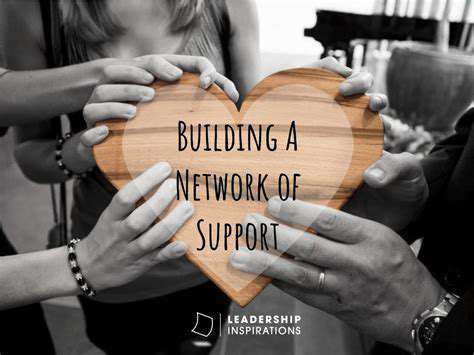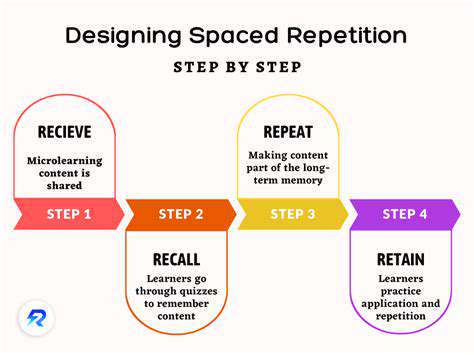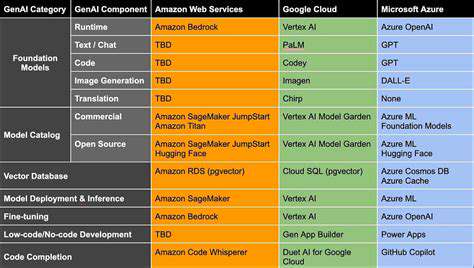Guide to Cultivating Resilience
Recognizing Your Values and Beliefs
Your deepest values act as an internal compass, guiding decisions both large and small. When your daily actions align with these core principles, you experience greater satisfaction and less internal conflict. Start by identifying what truly matters to you - is it creativity? Security? Adventure? Service to others?
Notice when you feel most fulfilled and energized - these moments often reveal your authentic values in action. Conversely, pay attention to situations that drain you or make you uncomfortable, as these may indicate conflicts with your fundamental beliefs.
Examining Your Motivations and Goals
Understanding what truly drives you requires moving beyond surface-level desires. Ask yourself why repeatedly to uncover deeper motivations. For instance, if you want a promotion, is it primarily for the money? Status? Creative freedom? The ability to mentor others? The most sustainable motivation comes from aligning your goals with your authentic self rather than external validation.
Periodically revisiting your goals ensures they still resonate with your evolving priorities. Life circumstances change, and so do we - the aspirations that excited you five years ago might need adjustment to reflect who you've become.
Developing Self-Compassion and Acceptance
Many high achievers struggle with excessive self-criticism, ironically undermining their own success. Treating yourself with the same kindness you'd show a struggling friend actually enhances performance over time. Research shows that self-compassionate individuals are more resilient after failures and more likely to persist toward challenging goals.
Practice reframing negative self-talk: Instead of I always mess this up, try This is challenging, but I'm learning. Celebrate small wins along your growth journey, remembering that mastery develops gradually through consistent effort.
Building a Supportive Network

Cultivating Connections for Growth
Meaningful professional relationships develop through mutual value exchange, not just contact collection. The strongest networks form when people connect around shared purpose rather than superficial networking. Look for individuals who challenge your thinking while supporting your growth - these tend to be the most valuable connections long-term.
Quality trumps quantity in relationship-building. Investing in a few deep, authentic connections often yields greater benefits than maintaining hundreds of superficial ones. Schedule regular check-ins with key people in your network, even if just brief messages to share an interesting article or congratulate them on an achievement.
Strategies for Building a Robust Network
Effective networkers focus on giving before receiving. When attending industry events, approach conversations with curiosity about how you might help others rather than what you can gain. This mindset shift makes interactions more authentic and memorable.
Seek mentors at different career stages - someone just a few steps ahead can offer practical, immediately applicable advice, while seasoned veterans provide big-picture perspective. The most impactful mentoring relationships develop organically through demonstrated commitment and follow-through rather than formal arrangements.
Volunteering for causes you care about naturally connects you with like-minded professionals while contributing to something larger than yourself. These shared experiences often forge stronger bonds than traditional networking events.
Remember that digital tools should enhance, not replace, human connection. While LinkedIn messages have their place, nothing replaces the nuance of a phone call or coffee meeting when building meaningful professional relationships.
Practicing Self-Compassion and Self-Care
Understanding Self-Compassion
Self-kindness during struggles isn't weakness - it's emotional intelligence in action. High performers often mistakenly believe self-criticism drives success, when research shows the opposite is true. The most resilient individuals practice acknowledging difficulties without exaggerating or minimizing them - a balanced perspective that fuels effective problem-solving.
When facing challenges, try speaking to yourself as you would to a valued colleague. This simple shift in internal dialogue can dramatically improve your ability to navigate obstacles while maintaining emotional equilibrium.
Identifying Your Needs
Tuning into your physical and emotional signals requires slowing down in our fast-paced world. Keep a simple log for a week noting energy highs and lows, along with accompanying circumstances. You'll likely spot patterns revealing your optimal work rhythms, social needs, and required recovery time.
Many people confuse wants with true needs. While that extra coffee might feel like a need in the moment, what your body probably requires is hydration or a brief movement break. Learning to distinguish between temporary cravings and genuine requirements is a cornerstone of effective self-care.
Prioritizing Self-Care Activities
View self-care as ongoing maintenance rather than emergency repair. Just as you wouldn't wait until your car breaks down to change the oil, don't postpone self-care until you're overwhelmed. Schedule recharging activities with the same importance as work meetings - they're equally vital to sustained performance.
Experiment to discover which practices truly rejuvenate you versus those that are simply habitual. For some, social interaction energizes; for others, solitude restores. There's no universal formula - honor what works uniquely for you.
Developing Healthy Coping Mechanisms
Effective coping strategies share common traits: they're accessible, sustainable, and don't create additional problems. For instance, while retail therapy might provide temporary relief, it can lead to financial stress. Instead, develop a toolbox of varied techniques for different situations - deep breathing for immediate stress, a walk in nature for mental fog, or creative expression for emotional processing.
Periodically assess whether your coping mechanisms still serve you well. As we grow and change, our needs evolve - strategies that worked in our twenties might need adjustment in our forties.
Practicing Mindfulness and Meditation
Mindfulness isn't about emptying your mind, but rather observing your thoughts without getting swept away by them. Start with just five minutes daily focusing on your breath. When your mind wanders (as it will), gently return focus without self-judgment - this mental rep strengthens your attention muscle.
Integrate mindfulness into daily activities by fully engaging your senses during routine tasks like washing dishes or walking. This practice builds your ability to stay present during more challenging situations.
Seeking Support When Needed
Recognizing when you need help demonstrates wisdom, not weakness. Create a personal board of advisors - trusted individuals you can turn to for different types of support, whether professional guidance, personal wisdom, or simply compassionate listening.
If persistent negative thoughts or emotional struggles interfere with daily functioning, consider consulting a mental health professional. Just as you'd see a doctor for persistent physical symptoms, your mental wellbeing deserves equal care and attention.


![Guide to Learning [Specific Software, e.g., Excel]](/static/images/31/2025-04/CreatingandFormattingCharts3AVisualizingYourData.jpg)

